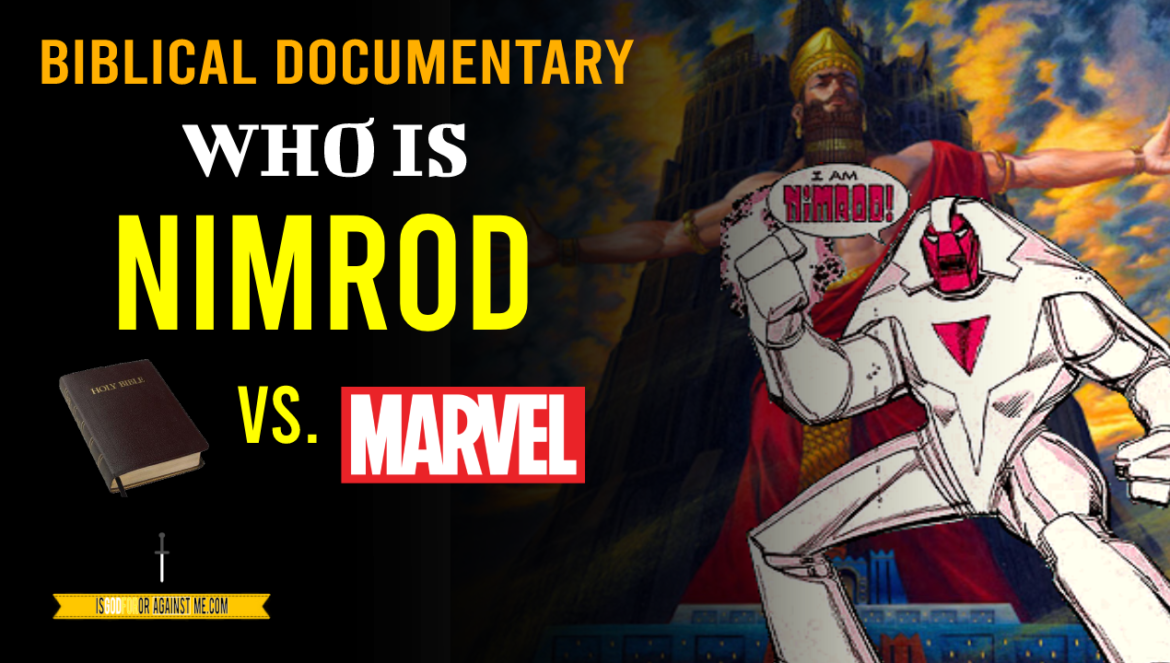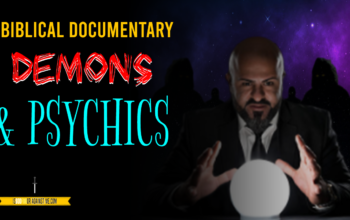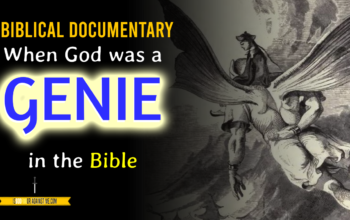As a curious Christian, long-time Marvel fan, and ongoing student of the Bible, I have always had this deep fascination with the supernatural.
I have watched pretty much every Marvel movie released post the 2008 Iron Man golden era, which is “supposedly” coming to an end with this last installment of Avengers: End Game.
So any Marvel content now streaming on Disney+ is fair game for leisure indulgence.
When I’m viewing anything, I am ALWAYS looking at it through a Biblical lens which makes certain things more fascinating than they probably should be. Subconsciously, my antennas go up, looking for connections that are either intentional or not.
For example, Ultron menacingly mentioning that “Upon this rock, I will build my church” is CLEARLY a Jesus quotable. The Lord Jesus told Peter the same thing when asked, “Who am I?” to Peter’s response, “Thou art the Christ” (Matthew 16 – 18).
These references provide clear evidence that someone in Hollywood loves to configure the red words of Christ into diabolical dialogue used by villainous, anti-christ figures desiring to become God themselves.
When watching Marvel’s Runaways, my antennas elongated to the ceiling when I saw the church’s name, “The Church of Gibborim,” in the first episode.
Are you a “Too long, Didn’t Read” person? Watch the video adaptation of this article
Many Christian speakers who specialize in Nephilim research and the word etymology have brought this word up before. When the name appeared on the van’s side, my antennas went off. “Oh, I know what that means!!!”
The word “gibbor” comes from the Hebrew translation in the Bible meaning “mightiest.” In the Bible, Nimrod in Genesis is known to be a “Gibborim” (He was mighty on the earth—Gen 11) and considered the first anti-Christ allowing himself to be under Lucifer’s influence or some hybridization with an eternal source.
Marvel’s Runways first premiered in July 2003 as part of Marvel Comics’ “Tsunami” series. It was canceled in September 2004 and later brought back in February 2005. Its characters consist of six youth.
These youth eventually learn that their parents are a criminal group consisting of mob bosses, time-travelers, dark wizards, mad scientists, alien invaders, and telepathic mutants. This supergroup of villains is called “The Pride.”
The world thinks of the word “pride” as having positive connotations to reinforce positive self-esteem, confidence and to think highly of ourselves for success when we use it in our everyday communication. “I’m so proud of you!” “Be proud of who you are!” are statements of flattery and compliments to warm the soul.
However, how does God feel about “pride”? Many scriptures signal God detest pride and a prideful person, primarily when pride feeds the ego, which leads to someone gaining a superiority complex.
In Proverbs 6:16-19, God hates these six things, yet seven one is an abomination to Him. Of the six, the first one mentioned?
“A proud look.”
Proverbs 16:18 foretells only one result: “Pride leads to destruction, and arrogance to downfall.” Books such as Psalms outline the characters of a wicked prideful person, while others only mention one end to those who champion their pride.
So the question has to be asked: did the writer who created “Runaways” for Marvel call this sinister group “The Pride” based on the general public’s flowery use of the definition, or was he simply calling it a spade as God sees the prideful?
Six Degrees of Separation

Of the six youth, Molly Hayes being a mutant who possesses incredible strength, could be a variable that connects her storyline to the X-Men (there is another show titled “The Gifted,” which is a direct draw from the X-Men). About the X-Men, there is an element of six degrees of separation—in the Days of Futures Past storyline, the remaining X-Men that did die off faced a sentinel android by the name of who?
Nimrod.
Yet, who is Nimrod?
The Bible itself does not provide much detail on who this character is. It only mentions him as a timeline reference with some liner notes:
“And Cush begat Nimrod: he began to be a mighty one in the earth. He was a mighty hunter before the LORD: where it is said, Even as Nimrod the mighty hunter before the LORD. And the beginning of his kingdom was Babel, and Erech, and Accad, and Calneh, in the land of Shinar”(Genesis 10:8-10 KJV).
Though this doesn’t say a lot, it says A WHOLE LOT!
Let’s first examine the name “Nimrod.” What is its meaning?
Bible archaeologist Dr. David P. Linvingston of Associates for Bible Research provides this information him the etymology of the name “Nimrod” on ChristianAnswers.Net:
First, what does the name Nimrod mean? It comes from the Hebrew verb marad, meaning “rebel.” Adding an “n” before the “m” becomes an infinitive construct, “Nimrod.” (see Kautzsch 1910: 137 2b, also BDB 1962: 597). The meaning then is “The Rebel.” Thus “Nimrod” may not be the character’s name at all. It is more likely a derisive term of a type, a representative, of a system epitomized in rebellion against the Creator, the one true God. Rebellion began soon after the Flood as civilizations were restored. At that time, this person became very prominent.
In Genesis 10:8-11, we learn that “Nimrod” established a kingdom. Therefore, in the literature of the ancient Near East, one would also expect to find a person who was a type, or example, for other people to follow. And there was. It is a well-known tale, familiar in Sumerian literature, of a man who fits the description. In addition to the Sumerians, the Babylonians wrote about this person, the Assyrians likewise, and the Hittites. Even in Israel, tablets have been found with this man’s name. He was the most popular hero in the Ancient Near East.
The epic of Gilgamesh, a figure popular in Collegiate level English literature still taught about to this day, parallels in many ways the epic of Nimrod as he too set out to create a kingdom that opposed The Most High God. View the website ChristianAnswers.net for more details.
There are more questions than answers to why Marvel selects biblical figures to represent their fictional villains or heroes in comics. Using Nimrod is not the only instance as Adam Warlock borrows from the Adam of the Bible and Azazel in X-Men: First Class comes from the book of Leviticus, an entity who received a “scapegoat,” and from the book of Enoch, the name of the leader of fallen angels who married human women.
Is Marvel interested in subtlely teaching Biblical lore to its consumers, or are they more fascinated with rebellious creations than the Creator? Most of the occult, many believe that Lucifer is the good guy while the Heavenly Father, the Great I AM, is mere the tyrannical entity that kills at random wanting His creation to perish for no reason.
And Lucifer is here to save us from that, supposedly.
When Christians are guided by the Holy Ghost, opportunities arise to educate others on the genuine origin of these characters shining a light that they are not who they are presented to be. From there, spreading the Gospel of Peace can occur with a proper introduction of the true morning star, the Lord and Savior Jesus Christ, who understands from experience what we are going through in our sinful nature.
God entered our world with no high reputation, walking with us in flesh of His own so we can have a chance to be with Him today and forevermore. It is the ultimate act of love and empathy.
So Marvel: keep pumping that biblical lore into your superheroes and storylines. While generations continue to dismiss the bible as a “dusty old book”, Marvel will persistently dust those pesky Spider-Man cobb webs off its edges.


